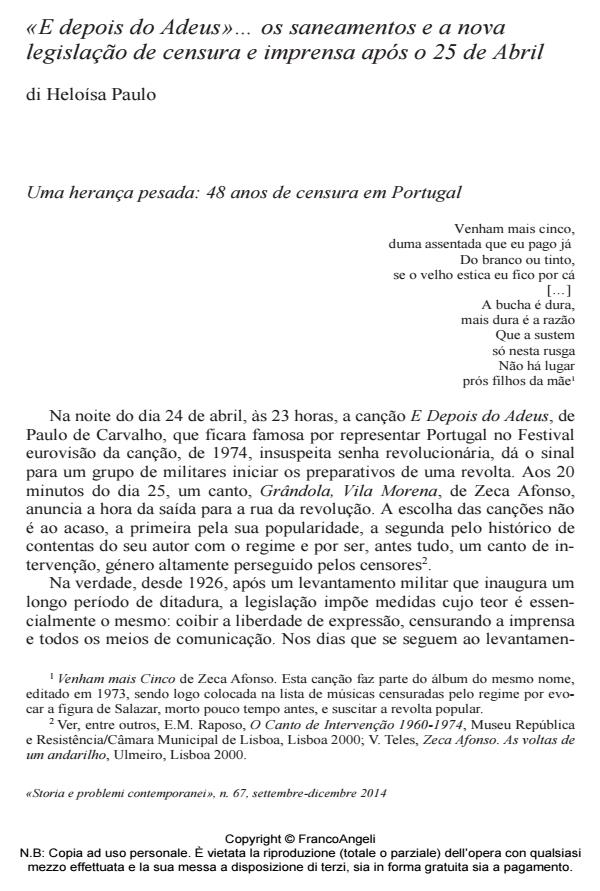"E depois do Adeus".. Purge and press and censorship laws after april 25
Journal title STORIA E PROBLEMI CONTEMPORANEI
Author/s Heloìsa Paulo
Publishing Year 2015 Issue 2014/67
Language Spanish Pages 15 P. 101-115 File size 87 KB
DOI 10.3280/SPC2014-067006
DOI is like a bar code for intellectual property: to have more infomation
click here
Below, you can see the article first page
If you want to buy this article in PDF format, you can do it, following the instructions to buy download credits

FrancoAngeli is member of Publishers International Linking Association, Inc (PILA), a not-for-profit association which run the CrossRef service enabling links to and from online scholarly content.
On the evening of 24 April 1974, the song E Depois do Adeus (After the Farewell) was broadcast on Portuguese radio as a signal to start the military coup against the dictatorship. It was the end of the fascist regime, which had lasted for 48 years. New legislation put an end to censorship and the press constantly reported on the work carried out by the committees. However, the members of these committees were soon accused of carrying out political persecutions and new laws were enforced to avoid this type of abuse, but these in fact facilitated impunity. The purpose of this article is to analyse the laws and procedures which marked the revolutionary period and the development of Portuguese society in the years immediately after 1974.
Heloìsa Paulo, «E depois do Adeus».. os saneamentos e a nova legislação de censura e imprensa após o 25 de Abril in "STORIA E PROBLEMI CONTEMPORANEI" 67/2014, pp 101-115, DOI: 10.3280/SPC2014-067006